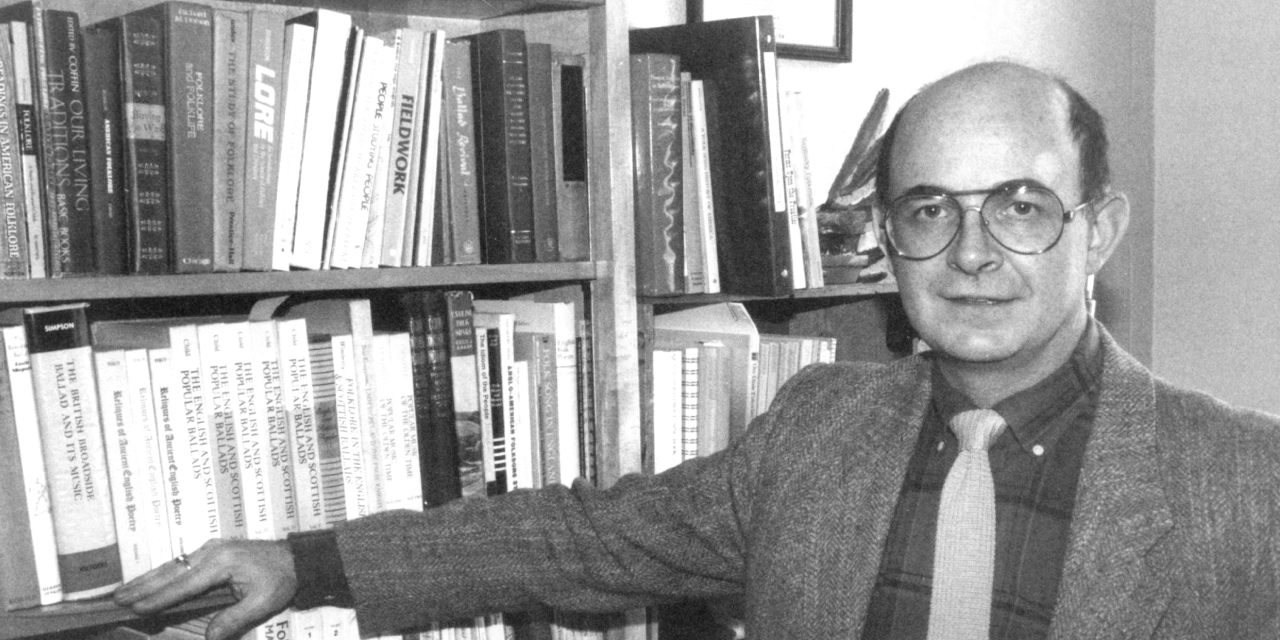The bridge
In the fall of 1968, the Toronto-based folk band the Irish Rovers were in St. John’s to perform a series of sold-out concerts.
They were staying at the Battery Hotel (now Memorial University’s Signal Hill Campus), and from behind the door of another room, they could hear the strumming of a banjo. They decided they wanted to meet this unknown musician and get together for a jam session.
That unknown banjo player was Dr. Neil Rosenberg, who had recently arrived to take up a position at Memorial’s Department of Folklore and was staying at the hotel while he and his family awaited a more permanent place to live.
He ended up meeting Will Millar of the Irish Rovers at the coffee shop in the hotel, and they did get together to jam.
This was Dr. Rosenberg’s first encounter with live music in Newfoundland and Labrador. It would not be his last.
Dr. Rosenberg grew up in the western United States. He started following folk music in his early teens. In some ways, his education in folk music came from two different experiences. He received his master’s and PhD in folklore from Indiana University. And he also spent time working as a musician at Bill Monroe’s country music jamboree park in Bean Blossom, Indiana.
When he arrived in St. John’s in 1968, Memorial’s Department of Folklore was brand new, and he was just the second full-time faculty member. The other was the renowned folklore scholar Hebert Halpert, who had recently been made head of the department.
Along with his teaching and research responsibilities, Dr. Rosenberg also became the archivist for Memorial’s Folklore and Language Archive (MUNFLA). He helped build the collection by conducting and encouraging fieldwork that documented Newfoundland and Labrador’s rich oral traditions, storytelling and folk music.

Dr. Neil Rosenberg in his office in 1987. Photo from Memorial University Archives.
MUNFLA is now one of the most extensive collections of folklore material in Canada. Dr. Rosenberg’s efforts ensured that both future scholars and the public could access this wealth of knowledge.
Through his research, he documented and analyzed how musical traditions evolve over time and how music is shared, adapted and preserved within communities. His work bridged the gap between academic scholarship and popular culture.
In 1985, his book Bluegrass: A History provided a comprehensive analysis of the development of bluegrass music and its cultural significance. It explained how bluegrass music, often perceived as a regional genre, was in fact a dynamic and evolving tradition with global reach. The book is still considered the definitive history of bluegrass.
Dr. Rosenberg is a Fellow of the American Folklore Society. He has received the Marius Barbeau Medal for lifetime achievement from the Folklore Studies Association of Canada and the title of professor emeritus from Memorial University.
In 1997, he won a Grammy for his contribution to the liner notes for the reissue of Harry Smith’s Anthology of American Folk Music.
In 2015, he was inducted into the Bluegrass Hall of Fame.
For over 50 years, he’s been playing bluegrass and folk music with his band Crooked Stovepipe, named after an old fiddle tune.
There is no clear distinction between Dr. Rosenberg’s academic work and his work as a performing musician. His musical skills and knowledge of numerous genres inform his scholarship, and his scholarship influences his understanding of the music he plays.
His life’s work stands as a bridge between scholarship and performance, just as his field work, teaching and playing form a bridge between the past and the present.
In this way, the music never ends.
